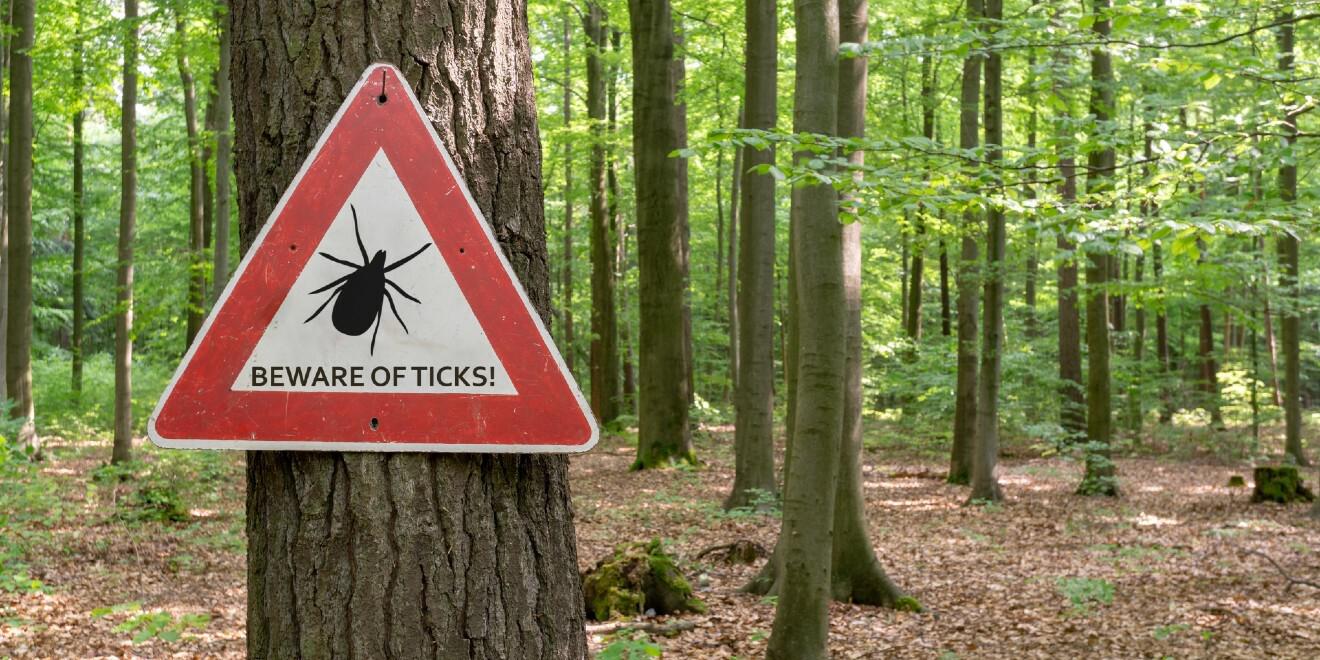Myth Busting: Common Tick Myths
Posted by Mosquito Squad
May 21, 2024

Debunking Common Myths About Ticks
Ticks have garnered a reputation for their sneaky ability to latch onto hosts and transmit diseases. This reputation has led to misconceptions about their abilities, such as how they find a host and what percentage of ticks can transmit specific diseases. Here we’re breaking down common tick myths and dispelling tick misinformation!
5 Common Tick Myths
Myth 1: Ticks jump from trees to latch onto their hosts.
Do ticks jump? No, ticks cannot jump. Their hind legs are not very solid. They’re better equipped for crawling and a technique called "questing,” as their legs are covered with short hairs and end in curved claws with a sticky grip. Questing refers to climbing to the top of grass or vegetation and waiting with their front legs outstretched. When a host brushes by, the tick transfers to the host and latches on.
Okay, so they climb up grass and shrubs, but do ticks live in trees? No, not really. You may see a tick in a very young, short tree, but ticks more commonly hang out in bushes and brush because of the higher humidity and protection offered.
If you have overgrown shrubbery in your yard that could be hiding ticks, pruning services from Monster Tree Service can help you manage your landscape and stay safer.
Myth 2: Ticks die in winter.
Do ticks die in the winter? Ticks do not always die in the winter. While tick activity decreases in colder months, the insects don't necessarily die off during winter. Some tick species are adapted to survive in colder temperatures by seeking shelter among leaf litter or burrowing into the ground. In milder climates that remain above 45 degrees Fahrenheit, ticks may even remain active throughout the year. That’s why it’s important to continue taking precautions against ticks and checking pets for ticks throughout the year.
Myth 3: All ticks transmit Lyme disease.
Do all ticks carry Lyme disease? No. While Lyme disease is associated with ticks, not all ticks carry the Lyme disease-causing bacterium, Borrelia burgdorferi. Primarily the black-legged tick, aka the deer tick, is known to carry the bacterium. Different tick species carry different diseases, so it's important to be aware of the specific risks associated with the ticks in your region.
Related Blog: Don’t Tick Me Off! Know What Ticks Carry Lyme Disease
Myth 4: You'll immediately feel a tick bite.
Can you feel a tick bite? It’s unlikely that you will feel the initial bite. Tick bites are often painless, and ticks can remain attached for an extended period before even being noticed! However, tick bites may be painful after the tick is removed. Since it’s common for ticks to go undetected for hours or even days, it’s important to regularly check your body for ticks. If ticks are abundant in your yard, we recommend getting a professional tick control service to defend your property.
Myth 5: You can kill a tick by drowning it.
Can ticks drown? Well, technically yes, eventually … But we don’t advise using a drowning method to quickly kill a tick because they can survive in water for two to three days! While ticks can’t swim, they are highly adaptable and can breathe through the air trapped in their hairs using an alternate respiratory system called their plastron. A more effective way to reduce tick numbers in your yard is by scheduling professional tick control services.
Professionally Control Tick Populations in Your Yard
The more you know about ticks, the better prepared you can be to take proactive steps toward protection. At Mosquito Squad we understand the danger that ticks pose to human and animal health. That’s why we provide two methods to control the pest. Our traditional barrier treatment method targets areas where ticks live, kills the pest on contact, and deters them for up to 21 days. Our tick tube treatment involves placing biodegradable tick tubes around your property. The tubes are filled with insecticide-treated cotton that mice then collect and use for bedding. When ticks attach to the mice, they are taken to mouse nests and eliminated by the cotton. Contact the Squad today at (877) 332-2239 or request a free quote online and learn more about how tick control can benefit your yard.
